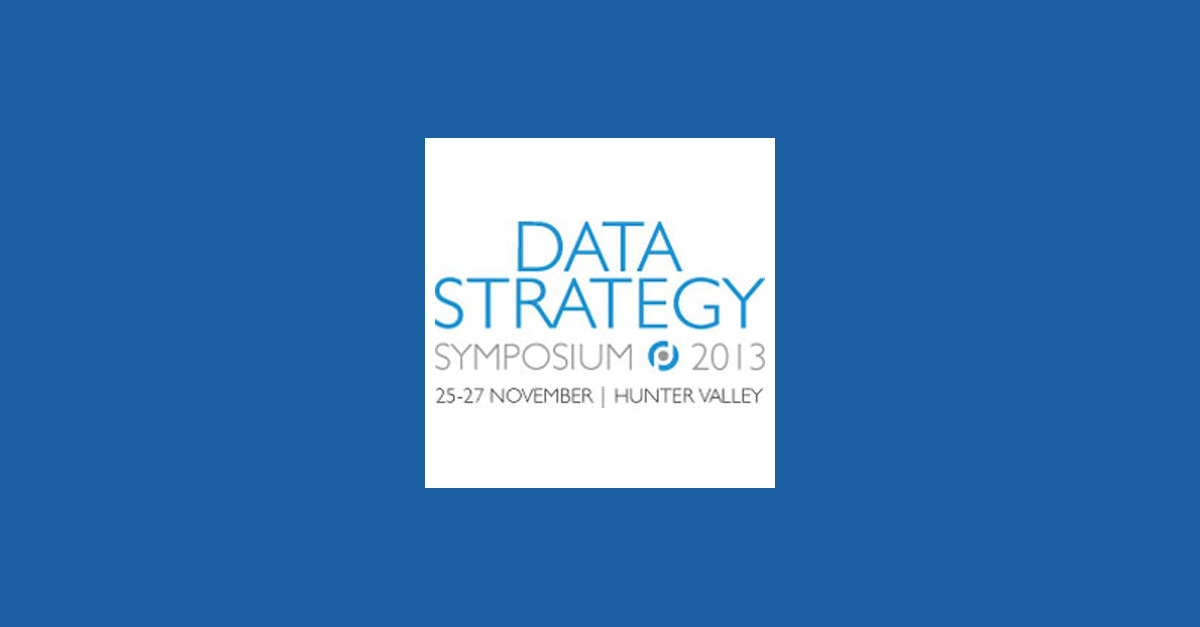I was asked to co-present with Russell Nash from AWS at Data Strategy Symposium 2013 held this week in the Hunter Valley. Our talk included three case studies – two from DiUS and one from AWS – of how data science can drive better business performance. DiUS has done some really interesting work this year on predictive analytics, and it was this work from which I drew my case studies.
The symposium’s agenda looked interesting so I decided to attend the whole event. The audience was mainly marketing and advertising influencers. Many of the topics discussed were about how to best use the richer data now available to target the right people with the right message at the right time though the right channel. There were many interesting threads across the two days; these were the top three that resonated with me.
Talking in terms of data’s “bigness” is not very helpful
It’s not about the size of data; many of the tools used to manage large data sets, and apply statistics to them, have been around for decades. Talking about data size distracts from the real value: the insights we can gain by linking data sets together. Even though we have better quality data, let’s not forget the lessons learned over decades about how to deal with data: statistical truisms, how to look at data the right way, to make sure we have the right data for the decisions we’re making. Even large data sets, taken by themselves, can be skewed and misleading.
Why this matters: It’s easy to get caught up in the hype and pretend that Big Data is new and cool, losing sight of decades-old, hard-won lessons about data traps. With data science, without heeding those lessons, we can still make bad decisions, really confidently.
Better prediction can avoid a big waste of money
We need to be more clever about what we do with data. My talk focussed on using machine learning and prediction to avoid waste and provide customers with more things they value. A few other talks touched on a similar theme. For example, if we predict the value of a customer, we can answer the question “How much should I spend to retain this customer?”. Should we retain this customer at all costs, or only if the cost to do so doesn’t exceed, say, $20?
Why this matters: Avoiding waste gives businesses freedom to pursue other priorities and achieve more. Applying machine learning, making predictions, and optimising where capital is directed can buy a lot of freedom.
Enduring customer loyalty must be earned, not demanded
Rather than pushing something valued by brands and demanding the loyalty of customers, brands need to focus on how to give consumers something they value, and earn their loyalty. Loyalty cards are one of the larger cogs of consumer analytics; they allow marketing analysts to link purchasing behaviour across brands and physical store locations to build an incredibly rich picture of individual consumers, allowing specifically crafted messages. However, consumers are becoming more savvy, and are likely to feel used and reject marketing messages that do not meet their needs or interests. On the other hand, marketing messages that are of real interest and relevance to a consumer are valued and loyalty to the brand is strengthened.
Why this matters: This is where machine learning and predictive analytics</a> can help. Better predictions about what a consumer will genuinely value is a better experience for the consumer and ultimately good for the brand.
These are three ideas I’m going to be thinking more about.

